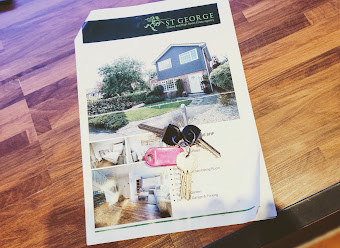How To Save Money For Your Children
 |
| Show me the money.....Dad! |
I have saved for my two children since they were born. A modest direct-debit goes out each month. Already I have four-figure sums saved for them.
By the time they hit adulthood, I would hope to have grown this more. I am not doing anything ground-breaking.
You would be surprised, how much you can grow money in an eighteen-year period. The power of compounding (more on this later) means you can leverage time, by saving regularly and growing a decent return.
In this post, I'll show you my approach and what I believe parents can do to save. I am no financial advisor, just a parent, trying to save for his kids. However, this approach would also work for parents wanting to save for themselves. These tips are aimed mainly at British parents, but some of the principals can be applied universally.
Why We Don't Save Enough?
The self-development journey of being a parent is priceless. Children are a blessing, but nobody said it was cheap.
The cost of living is high. Many parents don't even save for themselves, let alone the kids. When they do save, it becomes sporadic at best. Maybe putting aside some Christmas or Birthday money occasionally.
In the current climate, I appreciate things are difficult. Countries are battling the biggest recessions of modern times and things could get worse. Many families are battling a myriad of financial difficulties. If this is your situation, I understand the difficulties of saving.
The first five years of parenthood can be crazily expensive. Factor in childcare (if you work) and the cost escalates further. My monthly childcare bill was more than my mortgage at one stage (ouch!). So I could barely save at all. These costs reduce somewhat, when your child starts school.
In this situation, just start small and build it up, as your financial situation improves. The earlier you start, the better. Just a tiny amount a month, can lay the foundations for a good saving strategy.
Why You Must Save?
The future looks expensive. House prices are at record levels and out of reach for many. The basic cost of university (if your kids go) require five-figure sums. Decent jobs are no longer a given, even for the educated. Sorry if I am sounding bleak, please stick with me!
Your children will become adults quicker than you think. It is a tough, competitive and expensive world. Enjoy parenthood, but be conscious of the future and the world they are growing-up in. Do what you can for little Kenneth or Joanie (insert generic name).
Good financial planning for your children is imperative. They may need all the financial assistance they can get. You owe it to your kids, to do what you can, in these first eighteen years. Formulate a financial plan now. Every penny saved today, will benefit them in the future.
I find that too many parents don't understand the money basics, like inflation and compound interest. If people had better financial education, then parents would be better placed to save for themselves and their children.
Harnessing The Power Of Compound Interest
Einstein called compounding the eighth wonder of the world (apparently).
Compounding is interest on your interest, a return on your return. It's the secret path to growing money. In the right account, held for long enough, the returns can be sizeable.
From birth, you have eighteen years until your child hits adulthood. That is a lot of time to leverage compound and grow your child's savings pot.
To give you an example. If you were to save £1 a day (£7 a week) for eighteen years, with a 7% annual return, you would end up with approximately £13,000. Compounding over time, creates a snowball effect, where you gradually earn interest on interest.
Now you may think that 7% is unachievable, but I can assure you, there are investments out there, which will hit this comfortably.
As parents, we tend to worry about the present, but don't. As in life, you'll have good years and bad years. But over time, everything evens and averages out. Remember, you are growing money over an eighteen-year period. This is a long-term game and they'll be many economic cycles.
Avoid Junior Cash ISAs & Savings Accounts!
I avoid cash ISAs and savings accounts like the plague, even for myself. Cash ISAs are tax-free, but the interest return is typically poor. ISAs with better rates, normally come with strings attached. The days of 5-6% interest on a cash ISA are gone. You'll be lucky to see a 1% return, which doesn't beat inflation. So in real terms, you are losing money.
Unfortunately, many high-street banks still promote these products. Perhaps when interest rates were higher, I would have used them myself, but rates are at historic lows. This won't change soon and there is talk of banks introducing negative rates. Yep, that would mean no return on your savings and no more free banking.
Your aim is to grow your kid's money, over an eighteen year period. For this purpose, a traditional savings approach doesn't cut it.
Open a Junior Stocks & Shares ISA Today (UK only)
In the UK we have many great financial products. The Junior stocks & shares ISA is perhaps the greatest. Like an adult ISA, it is tax-free, and has a generous £9,000 a year allowance.
Unlike the Cash ISA, it allows you to invest your child's money across a range of investments, such as bonds, funds, shares, property, commodities etc.
Misconceptions exist about stocks & shares ISAs. With poor research and investment decisions, you can lose money. But a cash ISA loses money in real terms, with interest rates so low.
Just remember to be diversified and protected from risk. This is why I prefer to pick a strong fund over individual shares. Funds are invested across different companies, countries and sectors. They are diversified by design, meaning you are always capitalising somewhere.
Also, remember you are investing over a long period (eighteen years). There will be dips and gains, but economic cycles average out over time. Do some research, think long-term and remember that the alternatives will lose you money.
Broker Platforms & Funds
I opened the Junior stocks & shares ISA through the broker platform Hargreaves Lansdown, but other platforms like Vanguard are popular. They both have excellent websites and apps, where you can manage your child's money easily (see pic). Have a look around, there are many great broker firms and platforms out there. |
| Keeping App with things! |
I would recommend doing research on the best performing funds, before you decide. Many financial sites have recommendation tables and top tens. A fund overview shows how diversified a fund is. Most broker platforms charge a small fee when you invest in funds, but they are nominal. I like funds, because I know the money is being invested by people who know what they are doing, across all industries and sectors.
As I mentioned earlier, the impacts of compounding will seriously grow your contributions. Save regularly into a stocks & shares ISA and your child's money will grow exponentially.
I work on the 80:20 principle for my own children. So 80% of their money is held in a stocks & shares ISA. The other 20% I hold in cash, where I know the money is protected and easy-access.
Premium Bonds (UK only)
Premium bonds have been around a long time. They are run by the NS&I and allow a maximum holding of £50,000. They can be purchased on behalf of your children and by relatives. Money can be withdrawn at any point, no strings attached. I use them to fulfil the 20% cash element of my strategy.
The returns on traditional savings account are so bad, that people have flocked to them.
They work in a unique way. You forgo earning interest, but instead you are entered into a monthly prize draw. These monthly prizes range from £25.00 (common) up to £1 million (rare). Each £1 in premium bonds is a ticket, so the more you hold, the greater the chance you have of winning.
The attraction for me, is the money is protected, but also easy access. Prizes of £25 and £50 are quite common, so the money potentially matches inflation (if you win). You can also choose to reinvest this money into more Premium Bonds, when you do win.
I like easy-access accounts, because you can move quick should opportunities arise. Perhaps a new fund springs up, or shares in a new company or perhaps some new government initiative? It is never a good idea to have too many eggs in one basket.
Final Thoughts
- Growing money for your children is a long-term game, you have eighteen years to grow the money.
- Start as soon as you can and try to make regular monthly contributions.
- Start small if you have to, maybe £5-£10 a month.
- Avoid traditional cash ISA products, because they don't beat inflation. Instead opt for something like a Junior stocks & shares ISA, where growth is possible.
- Funds can be a good approach, because they are diversified by design.
- Harness the power of compound interest over time.
- Keep a small amount of cash in a separate account for easy access, ideally 20%.
- Always think long-term, never short-term. Don't be scared by small dips in investment performance and don't become overconfident with big gains.




Comments
Post a Comment